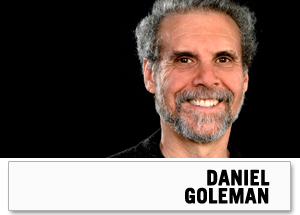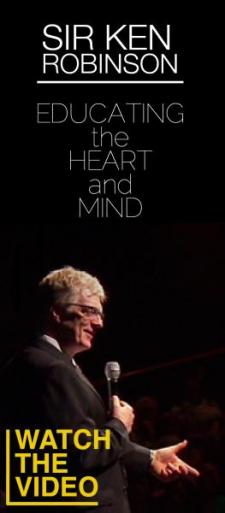Biography

Daniel Goleman is a best-selling author and internationally known psychologist who lectures frequently to professional groups, business audiences, and on college campuses.
Born to college professor parents in California in 1946, Goleman’s academic studies began on scholarship at Amherst College, MA, and concurrently at UC Berkeley, where he studied rituals of social interaction. He then attended Harvard’s clinical psychology program, where he was drawn to the idea of studying the human mind from an interdisciplinary perspective—anthropology, sociology, and psychology. A Harvard pre-doctoral travelling fellowship took him to India, with a focus on the ancient systems of psychology and accompanying meditation practices of Asian religions. His doctoral research was on meditation as a stress intervention. On a post-doctoral grant, he returned to Asia to continue his studies of ancient psychologies and to write his first book, The Meditative Mind.
Goleman returned as a visiting lecturer at Harvard to teach the psychology of consciousness. In 1984, he began his 12-year sojourn working as a science journalist, reporting on the brain and behavioural sciences for The New York Times. His 1995 book, Emotional Intelligence, has been a best seller in many countries and is changing our concept of “smart”—it’s not IQ; it encompasses a range of personal and social capabilities. The book advanced the idea that schools should teach emotional literacy. EI is now taught in public schools, and corporate leaders have adopted it as a new way of thinking about success and leadership. In 1993, Goleman co-founded the Collaborative for Academic, Social, and Emotional Learning (SEL), which now offers these life skills in thousands of school programs globally.
In 1998, Goleman addressed the business community’s interest in his theories in Working With Emotional Intelligence. His Consortium for Research on Emotional Intelligence in Organizations catalyzes research on how emotional intelligence abilities contribute to workplace effectiveness. In 2002, he co-authored Primal Leadership: Learning to Lead with Emotional Intelligence. His extraordinary 2003 book, Destructive Emotions: A Scientific Dialogue with the Dalai Lama, contains dialogues between the Dalai Lama and a small group of eminent psychologists, neuroscientists, and philosophers. The book puts to rest the misconception that the realms of science and spirituality are at odds.
Goleman continues to write and publish. His latest book, Ecological Intelligence, addresses the environmental, health, and social consequences of consumerism and the importance of allowing ecological comparisons to guide purchases.
Goleman says that his private life is increasingly important to him, as is meditation and travelling. He is married and has two sons and several grandchildren, and his personal life illustrates the practical lesson found in his book Social Intelligence: “Nourish your social connections.”





